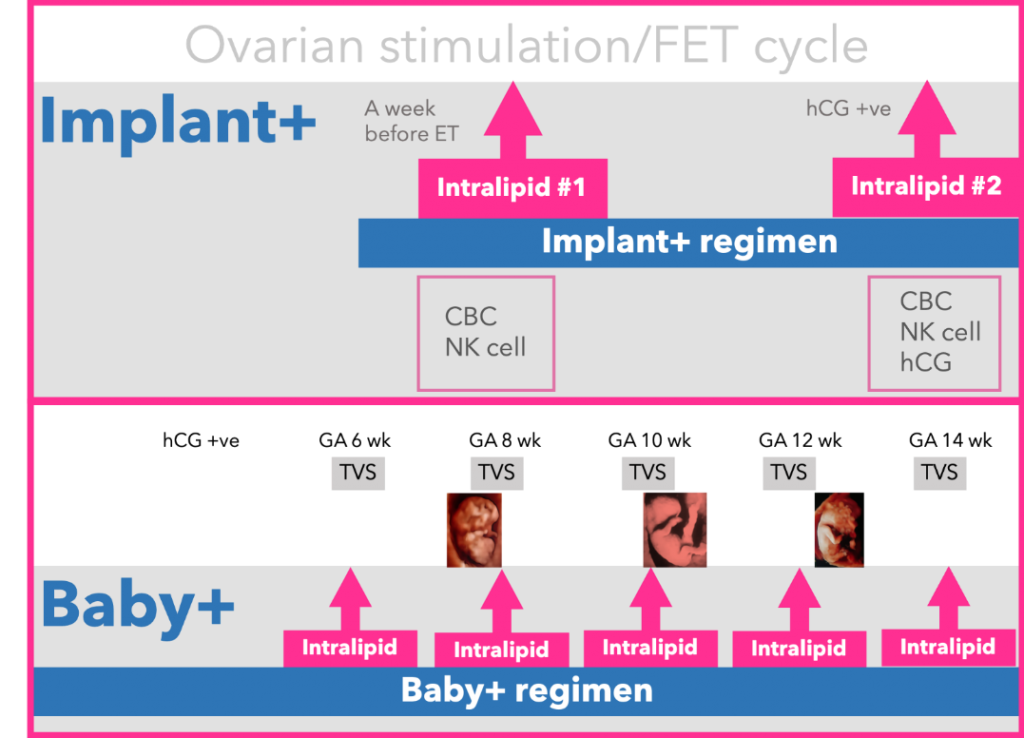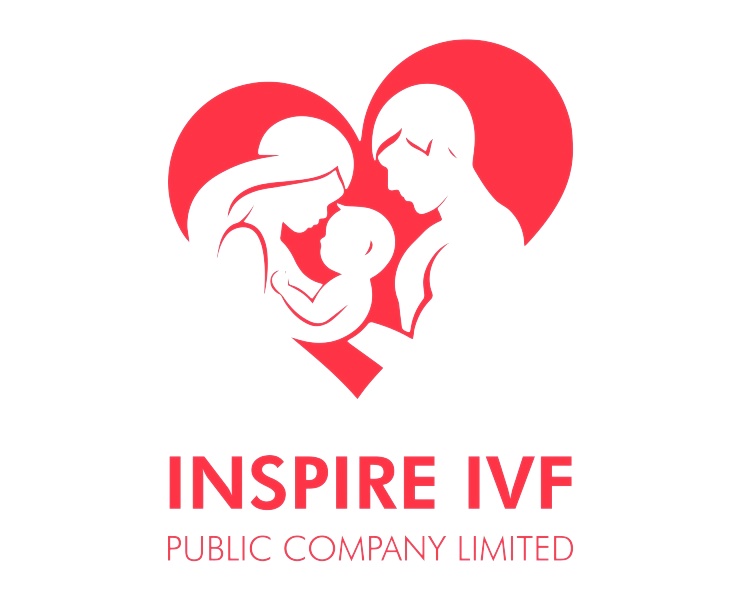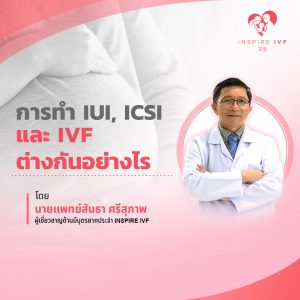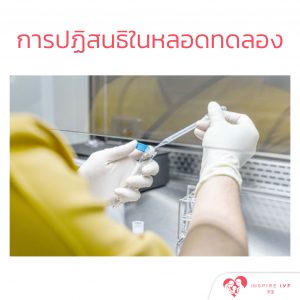Inspire IVF Treatment for Clients with Recurrent Implantation Failure of Embryos
To maximize your effort to bring home a baby with our expertise, and with input from a recognized overseas world-class expert in IVF and Intralipid treatment, Inspire IVF have created the Implant+ before pregnancy and Baby+ carry on your pregnancy through the first trimester.
What are the causes of recurrent failure of Embryos to Implant
There are some explanations as to why embryos do not implant shown in Figure 11,2.

Figure 1 Some causes of repeated implantation failure and repeated miscarriage and their management (4D TVS; 4D transvaginal sonography, ERA; Endometrial Receptivity Array, APA; AntiPhospholipid Antibody syndrome, LMWH; Low-Molecular Weight Heparin, NK cell; Natural-Killer cell, PGD; Preimpalntation Genetic Diagnosis)
To make the implantation and pregnancy progress smoothly, your body must suppress some immunological responses to avoid rejection of semi-allograft embryo (Figure 2A). On the other hand, this suppression might go into the opposite direction, and lead to semi-allograft rejection. As a result, your embryos do not implant, miscarry along the way, or an abnormally attached placenta, which can lead to a complication of pregnancy called ‘preeclampsia’ (Figure 2B).

There are some adjuvant therapies that might carry you and your precious pregnancy toward the end.
What does Intralipid Treatment do?
INTRALIPID infusion effectively suppresses Th1 immune system especially uterine NK cells3 and increases the pregnancy rate in women with recurrent implantation failure and recurrent miscarriage undergoing an IVF/ICSI cycle4.
The Implant+ treatment regime is used for clients undertaking Fresh and Frozen Embryo Transfer cycles. The Baby+ treatment regime is applied from a positive pregnancy test result, up to 14 weeks of pregnancy. (Figure 3).

Figure 3 Implant+ and Baby+ treatments scheme.
Low Molecular Weight Heparin Treatment
Another promising adjuvant is low-molecular weight heparin (LMWH), there are significant evidences that even in women with normal coagulation, they can have pregnancy benefit from LMWH5–7 without adverse outcomes on the pregnancy and newborn8.
Each patient will be individually assessed and counseled regarding management with low-molecular-weight heparin (LMWH).
REREFENCES
- Timeva, T., Shterev, A. & Kyurkchiev, S. Recurrent Implantation Failure: The Role of the Endometrium. J Reprod Infertil 15, (2014).
- Simon, A. & Laufer, N. Assessment and treatment of repeated implantation failure (RIF). J Assist Reprod Genet 29, 1227–1239 (2012).
- Roussev, R. G., Acacio, B., Ng, S. C. & Coulam, C. B. Duration of intralipid’s suppressive effect on NK cell’s functional activity. Am. J. Reprod. Immunol. (2008). doi:10.1111/j.1600-0897.2008.00621.x
- Dakhly, D. M. R. et al. Intralipid supplementation in women with recurrent spontaneous abortion and elevated levels of natural killer cells. Int. J. Gynecol. Obstet. (2016). doi:10.1016/j.ijgo.2016.06.026
- Qublan, H. et al. Low-molecular-weight heparin in the treatment of recurrent IVF-ET failure and thrombophilia: A prospective randomized placebo-controlled trial. Hum. Fertil. (2008). doi:10.1080/14647270801995431
- Potdar, N., Gelbaya, T. A., Konje, J. C. & Nardo, L. G. Adjunct low-molecular-weight heparin to improve live birth rate after recurrent implantation failure: A systematic review and meta-analysis. Hum. Reprod. Update (2013). doi:10.1093/humupd/dmt032
- Berker, B. et al. The role of low-molecular-weight heparin in recurrent implantation failure: A prospective, quasi-randomized, controlled study. Fertil. Steril. (2011). doi:10.1016/j.fertnstert.2010.12.033
- Donnelly, J., Byrne, J., Murphy, K. & McAuliffe, F. Obstetric outcome with low molecular weight heparin therapy during pregnancy. Ir. Med. J. (2012).









